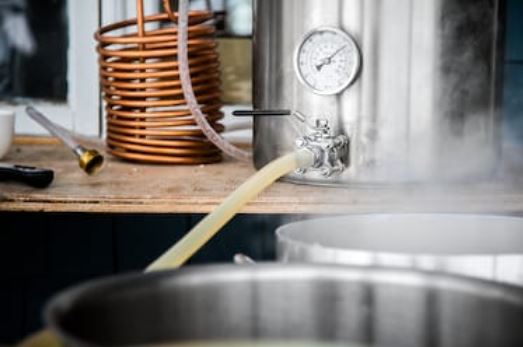
Homebrewing has recently increased in popularity as more and more people have started realizing the importance of brewing their own beer. By brewing your own bear, you can ensure it suits your taste and preferences and even save money in the long run. Additionally, brewing is a perfect hobby that is fun and exciting. You can learn this ancient craft and do it with your family and friends. If you’re just getting started on homebrewing, then there are a few things you need to keep in mind . By learning the basics of homebrewing and forming good habits from the start, you will find the entire brewing process easier, more fun, and hopefully tastier.
1. Never Overlook Sanitation
Sanitation and cleanliness are two most important things in homebrewing, and should be ensured all the time. You need to ensure proper sanitation and cleanliness issues before you even start brewing and do not stop until your bottles are capped. Usually, the most important time for sanitation concerns is the period of time immediately after cooling your beer. This is when infectious bacteria are most likely to contaminate your beer because the yeast hasn’t yet started to ferment. Also, you should ensure that your brewing surfaces and equipment are clean before beginning the brewing process. Also make sure that the cleaning solutions you purchase are specifically made for brewing and are safe.
2. Cool Your Wort As Fast as Possible
It is important that every time you are brewing, you try to cool your wort as fast as possible. Ensuring a fast cooling process is essential as it increases the fallout of proteins and tannins that can ruin your beer. It also minimizes the opportunity for bacteria and other organisms to grow. Additionally, cooling your wort fast can enhance your beer’s clarity to ensure it’s as visually appealing as possible.
3. Start with the Darker Beers
There is no doubt that high quality and fresh ingredients are key to a successful homebrew. It’s also imperative to understand your ingredients, as in which can be preserved in a fridge or not. For example, you can store fresh hops in your freezer without losing their quality, but if you store ingredients such as malt and crushed grains in a freezer, they will eventually get oxidized and destroy the flavor. Yeast should be stored in a fridge and crushed grains and malt extract should be stored in a cool, dry place and used quickly because they have a short shelf life.
5. Opt for Glass Fermenters
Many home brewing kits come with plastic buckets for fermentation. While the plastic fermenters are a cheap way to start with, they are some of the pieces of equipment that you should consider upgrading as you go on. Stainless steel or glass fermenters offer a number of advantages over plastic. With these, contents do not stick as easily, so they are simpler to sterilize and clean. They also offer a better barrier against oxygen which plastic fermenters can’t match since they are porous. They got some great kits over at Northshire Brewery with these.
6. Always Think Long-Term
Brewing beer is an investment. Every time you make a purchase of an equipment, think of how it will serve you over the long run. Remember investing in cheap equipment in order to save a few dollars today can cost you a lot in future. If you are planning to upgrade your equipment, then there’s a good chance you want it to stand the test of time so so upgrade intelligently.
Home brewing is an art and science and also a whole lot of fun. The key to successful homebrewing is being patient, thinking strategically, using the right ingredients and making proper decisions with long-term in mind. Once you have mastered the basics, it’s all about experimenting and tweaking your methods until you discover the perfect beer.
